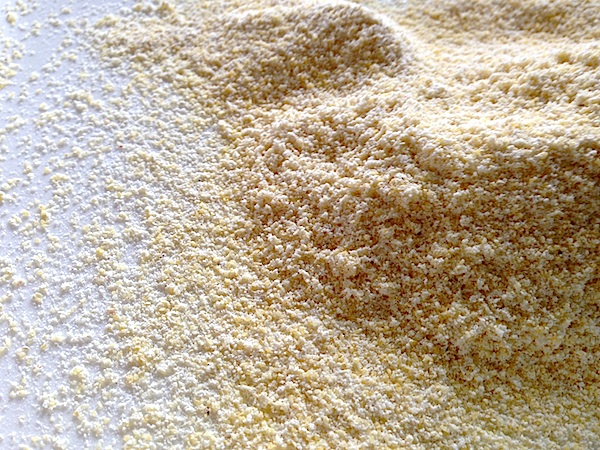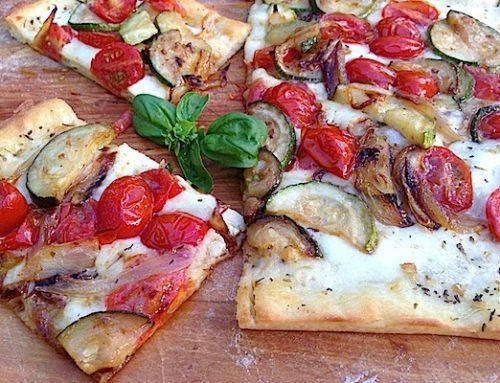A Note from the Chef
Polenta, or corn meal, once thought of as peasant food and a staple of the Italian diet, second only to pasta, has in recent years been elevated to gourmet status and appears on even the most elegant restaurant menus. This always results in a chuckle from me for I remember first hand its humble beginnings. Versatile polenta, soft when warm, firm when chilled and neutral in flavor offers a supportive base for a variety of dishes and sauces. It serves as a pliable prop for fish and meat dishes and perfect for lapping up sauces.
As a girl growing up in a large Italian family, polenta was more than a side dish–it took center stage in communal meals with aunts, uncles and cousins. It was served warm and creamy and presented on the center of a large, wooden cutting board like a huge mound of mashed potatoes. It was then shaped into a large ring with a hollow area in the center to which a richly flavorful meat and tomato sauce (much like a classic Bolognese) was ladled. Family members would then spoon portions onto their plates enjoying the perfect partnership between gruel and sauce.
Gathering around this communal plate was so much more than good eats…it’s symbolic meaning acted as a sort of kitchen table camp fire that led to rounds of story telling that the elders in the family joyfully passed on to the next generation, feeding them in spirit something that would last far beyond an immediate hunger for something tasty. This is shared food at its best.
Since food for me has always been a metaphor for life, the journey of polenta, from humble roots to gentrification did not escape me. Its obvious parallel to many of our ancestral voyages is clear, yet there is a message here that often gets lost in our human stories. In the process of discovery and application to more elegant tables, polenta is versatile yet never looses its basic character. It’s corn meal and never pretends to be anything else. In the process, its adaptability allows it to be appreciated by all: young, old, rich and poor. There is no discrimination.



